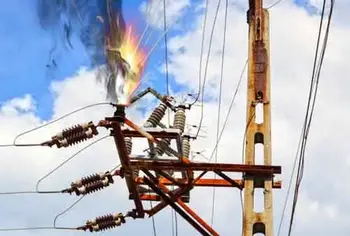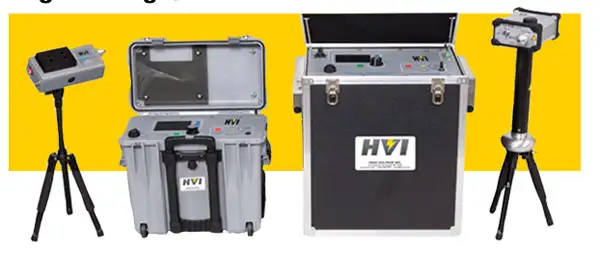Energy Management Program - Improve Efficiency
By William H. Mashburn, P.E., CEM
Download Our OSHA FS3529 Fact Sheet – Lockout/Tagout Safety Procedures

- Learn how to disable machines and isolate energy sources safely
- Follow OSHA guidelines for developing energy control programs
- Protect workers with proper lockout devices and annual inspections
Energy Management Program optimizes electrical loads via SCADA, submetering, and analytics, driving energy efficiency, demand response, peak shaving, load forecasting, and power factor correction to reduce kWh, cut OPEX, and improve power quality and reliability.
Energy Management Program Fundamentals
An energy management program is increasingly important in industrial, commercial, and institutional power systems due to growing concerns about energy efficiency, costs, and environmental impact. Implementing an effective energy management program (EMP) can help businesses save money, reduce their carbon footprint, and achieve sustainability goals. This article will delve into the key components of an energy management program and discuss how it can benefit businesses in various sectors. To understand the broader scope of best practices, resources on energy management provide context for implementation across sectors.
An effective EMP typically includes energy efficiency measures, energy audits, energy conservation strategies, building automation, energy monitoring, demand response initiatives, sustainable energy policies, and the implementation of EM systems. Facility management plays a crucial role in ensuring the success of such programs. For teams new to these concepts, a concise primer on what is building automation can help align terminology and roles.
One of the primary goals of an energy management program is to increase energy efficiency. This can be achieved by identifying areas where energy is wasted and implementing measures to reduce energy consumption. For instance, energy-efficient lighting, heating, and cooling systems can significantly reduce energy usage in commercial and institutional buildings. Incorporating energy management controls enables precise scheduling and setpoint optimization for measurable savings.
Energy audits are a vital component of an EMP, as they help identify areas of energy waste and provide recommendations for improving energy efficiency. These audits involve a thorough assessment of a facility's energy consumption patterns and equipment performance, which can lead to the implementation of cost-effective energy-saving measures. Audit findings are often operationalized through energy management systems that track KPIs and verify results.
Sign Up for Electricity Forum’s Building Automation Newsletter
Stay informed with our FREE Building Automation Newsletter — get the latest news, breakthrough technologies, and expert insights, delivered straight to your inbox.
Energy conservation strategies are another crucial aspect of an energy management program. These strategies aim to minimize energy consumption without compromising operational efficiency. Examples of energy conservation measures include optimizing equipment performance, implementing energy-saving operational procedures, and promoting energy-conscious behavior among employees. Modern analytics and automation in advanced energy management support continuous improvement in conservation programs.
Building automation systems play a significant role in energy management programs by allowing for the centralized control and monitoring of various building systems, such as HVAC, lighting, and security. These systems can help optimize energy usage by automatically adjusting settings based on factors like occupancy, time of day, and weather conditions. Selecting an open-protocol building automation system improves interoperability with meters and sub-systems for broader control.
Energy monitoring is essential for tracking the effectiveness of an energy management program. By continuously measuring and analyzing energy consumption data, businesses can identify trends, pinpoint inefficiencies, and implement corrective measures to optimize energy use further. Many organizations centralize this function within building energy management systems to visualize trends and trigger alerts.
Demand response initiatives can help businesses in industrial, commercial, and institutional power systems participate in energy markets by adjusting their energy consumption in response to market signals, such as electricity price fluctuations or grid reliability issues. This can help businesses reduce energy costs and support grid stability.
Sustainable energy policies guide businesses in adopting cleaner energy sources and reducing their reliance on fossil fuels, such as oil and gas. Examples of sustainable energy sources include solar, wind, and hydroelectric power. Integrating these sources into a facility's energy mix can help reduce greenhouse gas emissions and promote long-term sustainability.
EM systems support energy management programs by providing a platform for monitoring, controlling, and optimizing energy usage across a facility. These systems can help businesses identify opportunities for energy savings, improve equipment performance, and reduce energy costs.








